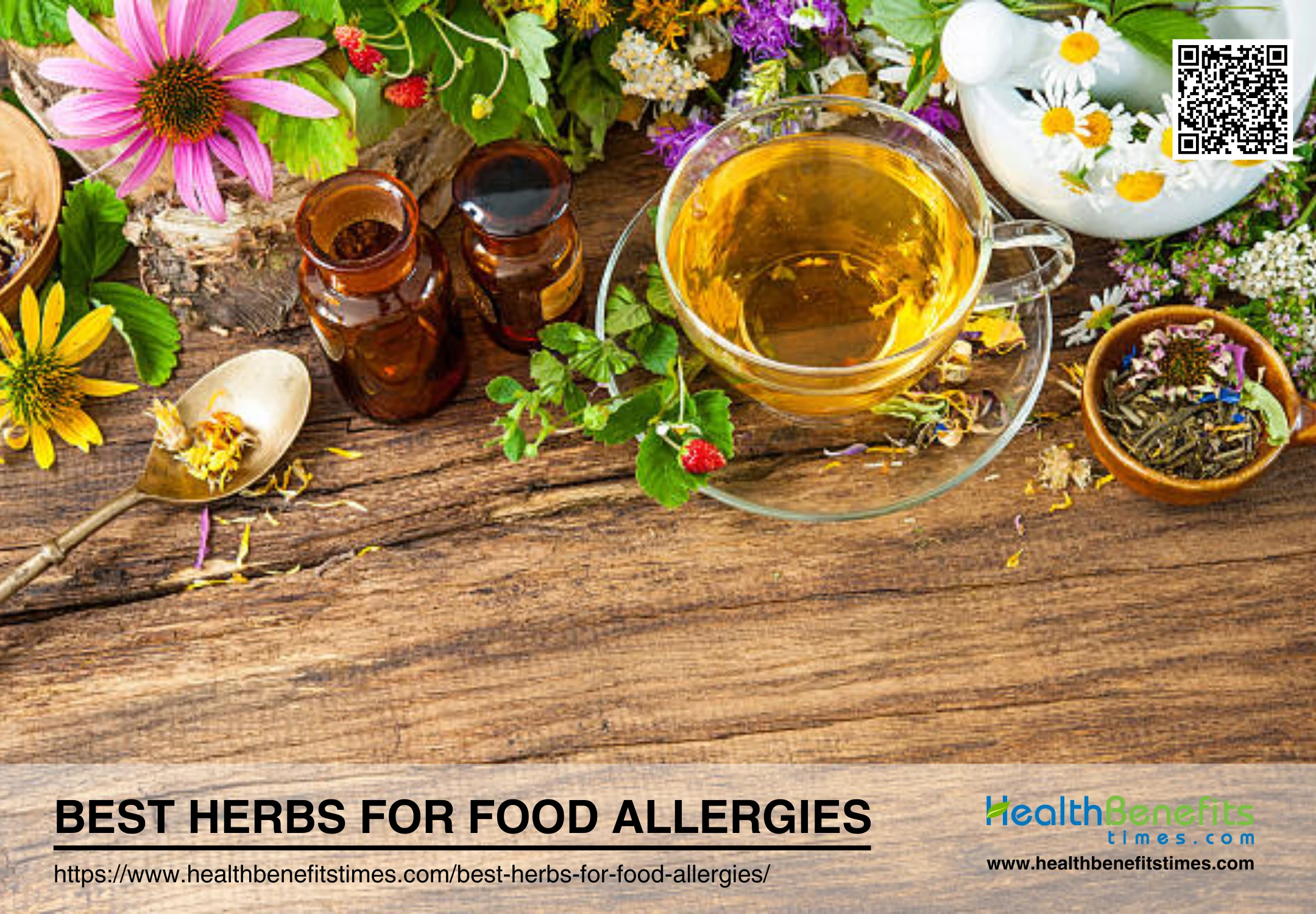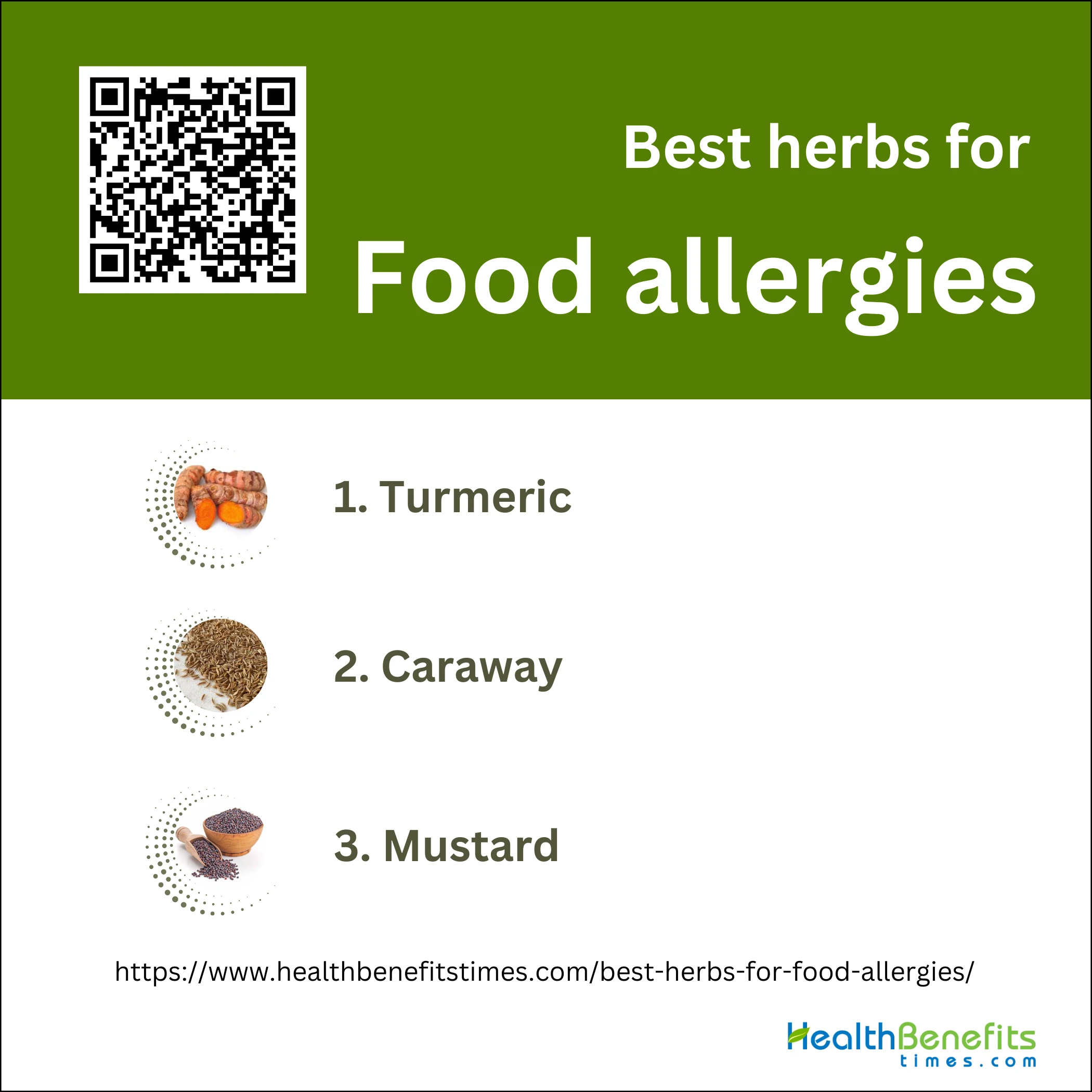 Food allergies are defined as adverse immune responses to food proteins, which can manifest in various clinical symptoms involving the skin, gastrointestinal tract, respiratory tract, and cardiovascular system. These immune responses can be IgE-mediated, non-IgE-mediated, or a combination of both. IgE-mediated food allergies involve the activation of the immune system, causing a T helper 2 response that results in IgE binding to receptors on effector cells like mast cells and basophils, leading to the release of histamine and other mediators, and rapid symptom onset. Non-IgE-mediated food allergies, on the other hand, involve cell-mediated immune responses and tend to have a delayed onset. The most common food allergens include milk, eggs, peanuts, tree nuts, fish, shellfish, soy, and wheat, which account for over 90% of allergic reactions. The prevalence of food allergies is increasing, particularly among children, and can significantly impact the quality of life and well-being of affected individuals and their families.
Food allergies are defined as adverse immune responses to food proteins, which can manifest in various clinical symptoms involving the skin, gastrointestinal tract, respiratory tract, and cardiovascular system. These immune responses can be IgE-mediated, non-IgE-mediated, or a combination of both. IgE-mediated food allergies involve the activation of the immune system, causing a T helper 2 response that results in IgE binding to receptors on effector cells like mast cells and basophils, leading to the release of histamine and other mediators, and rapid symptom onset. Non-IgE-mediated food allergies, on the other hand, involve cell-mediated immune responses and tend to have a delayed onset. The most common food allergens include milk, eggs, peanuts, tree nuts, fish, shellfish, soy, and wheat, which account for over 90% of allergic reactions. The prevalence of food allergies is increasing, particularly among children, and can significantly impact the quality of life and well-being of affected individuals and their families.
Types of Food Allergies
With so many different foods potentially causing allergic reactions, it’s crucial to be aware of the various types of food allergies. In this listicle, we’ll explore some of the most common and lesser-known food allergies, highlighting their potential triggers and symptoms to help you navigate the world of food allergies more safely.
- Milk allergy
- Egg allergy
- Peanut allergy
- Tree nut allergy (e.g. almonds, walnuts, cashews)
- Soy allergy
- Wheat allergy
- Sesame allergy
- Fish Allergy (e.g., salmon, tuna)
- Shellfish Allergy (e.g., shrimp, crab, lobster)
- Gluten Allergy (Celiac Disease)
- Corn Allergy
- Mustard Allergy
- Lupin Allergy
- Fruit Allergy (e.g., apples, peaches)
- Vegetable Allergy (e.g., celery, carrots)
- Meat Allergy (e.g., beef, pork)
- Seed Allergy (e.g., sunflower, poppy seeds)
- Legume Allergy (e.g., lentils, chickpeas)
- Spice Allergy (e.g., garlic, coriander)
- Latex-Fruit Syndrome (e.g., banana, avocado)
Common Causes of food allergies
The triggers for these allergic reactions can vary widely, but some foods are far more likely than others to cause problems. Understanding the common causes of food allergies is the first step toward managing and preventing allergic reactions. In this article, we’ll delve into the most frequent culprits behind food allergies, shedding light on the foods most likely to trigger your immune system and what to watch out for.
- Genetic predisposition
- Family history of allergies
- Early exposure to allergenic foods
- Delayed introduction of allergenic foods in infancy
- Changes in gut microbiome
- Environmental factors
- Increased hygiene and reduced exposure to microbes (hygiene hypothesis)
- Vitamin D deficiency
- Alterations in skin barrier function
- Changes in food processing and preparation methods
- Cross-reactivity between pollen and certain foods
- Occupational exposure to food allergens
- Use of antacid medications
- Cesarean section delivery
Best herbs for Food allergies
Using herbs to care for food allergies instead of conventional medication offers several advantages, primarily due to their safety profile and potential for fewer side effects. Traditional Chinese Medicine (TCM), for instance, has shown promising results in managing food allergies and related conditions like eczema. Herbal formulas such as Food Allergy Herbal Formula 2 (FAHF-2) have demonstrated safety and preliminary efficacy in both murine models and early clinical trials, with fewer adverse effects compared to conventional drugs like corticosteroids, which can have significant side effects, especially in children. Additionally, herbs like those used in TCM can modulate immune responses, inhibit mast cell activation, and reduce pro-inflammatory cytokines, offering a multi-faceted approach to allergy management. The use of herbs also aligns with the growing interest in complementary and alternative medicine, which is increasingly being integrated into mainstream healthcare due to its potential benefits and lower risk of adverse reactions. Thus, herbs provide a viable and often safer alternative to conventional medications for managing food allergies.
1. Turmeric
Turmeric has shown promise in helping control the negative side effects of food allergies through its anti-inflammatory and immunomodulatory properties. Studies have demonstrated that turmeric can significantly attenuate food allergy symptoms by regulating the balance between type 1 and type 2 helper T cells (Th1/Th2). In a mouse model of food allergy, turmeric was found to reduce symptoms such as decreased rectal temperature and anaphylactic response, while also inhibiting levels of immunoglobulins (IgE, IgG1) and mouse mast cell protease-1 (mMCP-1), which are typically elevated during allergic reactions. The active component of turmeric, curcumin, has been shown to inhibit histamine release from mast cells, playing a crucial role in modulating allergic responses.
What Research Says?
- Based on research carried out by Journal of Ethnopharmacology, Turmeric significantly reduced food allergy symptoms such as decreased rectal temperature, diarrhea, and anaphylaxis in a mouse model. It also inhibited the levels of IgE, IgG1, and mouse mast cell protease-1 (mMCP-1).
- As per studies undertaken by Molecular Nutrition & Food Research, Curcumin, the active component of turmeric, has shown anti-allergic properties by inhibiting histamine release from mast cells. It has been effective in reducing allergic responses in murine models, although its effects were weaker compared to whole turmeric.
How to Use
Turmeric can be used to help manage food allergies due to its anti-inflammatory and immunomodulatory properties. To incorporate turmeric for this purpose, add 1/2 to 1 teaspoon of turmeric powder to warm milk or tea, along with a pinch of black pepper to enhance absorption. You can also include turmeric in your cooking, such as in curries, soups, or rice dishes. For better results, combine turmeric with healthy fats like coconut milk or avocado oil. However, it’s important to consult a healthcare professional before using turmeric supplements for food allergies.
Potential side effects of Turmeric
Turmeric is generally well-tolerated, but some individuals may experience side effects, especially at higher doses. Common side effects include stomach upset, nausea, dizziness, and diarrhea. In rare cases, it may cause allergic reactions or liver problems. Excessive consumption can lead to increased bleeding risk and may interfere with iron absorption. It’s important to start with small doses and monitor for any adverse reactions.
Who should avoid Turmeric
Pregnant and breastfeeding women should avoid medicinal amounts of turmeric due to potential risks to the pregnancy. People with gallbladder problems, bleeding disorders, diabetes, or hormone-sensitive conditions should use turmeric cautiously. Those with liver disease or scheduled for surgery should also avoid turmeric. Individuals with kidney stones or a history of kidney problems should consult their doctor before using turmeric supplements.
Interaction with medications
Turmeric can interact with various medications, potentially affecting their efficacy or increasing side effects. It may interact with blood thinners, increasing bleeding risk. Turmeric can also interfere with diabetes medications, potentially lowering blood sugar levels too much. It may interact with antacids, NSAIDs, and certain statins. Always consult a healthcare provider before combining turmeric supplements with any medications.
2. Caraway
Caraway seeds have shown potential benefits for individuals with food allergies due to their anti-inflammatory and antispasmodic properties. These seeds contain compounds like carvone and limonene, which may help reduce allergic reactions and ease digestive discomfort often associated with food allergies. Caraway’s ability to support digestive health can be particularly beneficial, as it may help alleviate symptoms like bloating and cramping that can occur during allergic responses to food. Additionally, caraway seeds are rich in antioxidants, which can help boost the immune system and potentially reduce the severity of allergic reactions.
What Research Says?
- According to studies performed by Annals of Allergy, Asthma & Immunology, Caraway, along with other spices in the Apiaceae family such as aniseed, coriander, cumin, and fennel, shows cross-reactivity in individuals with allergies to these spices. This cross-reactivity is due to similar IgE-binding patterns among these spices.
- Research undertaken by Central European Journal of Immunology reveals Caraway contains major pan-allergens, including Bet v 1 analogues and profilins, which are also found in birch and mugwort pollen. This cross-reactivity can lead to allergic reactions in individuals sensitive to these pollens.
How to Use
While caraway is not specifically known for treating food allergies, it may help alleviate some digestive symptoms associated with allergic reactions. To use caraway for digestive support, steep 1-2 teaspoons of crushed caraway seeds in hot water for 10-15 minutes to make a tea. Drink this 2-3 times daily. Alternatively, add ground caraway to foods or take caraway oil capsules as directed. However, it’s crucial to consult with a healthcare professional before using caraway as a remedy for food allergies, as it may interact with certain medications and is not suitable for everyone.
Potential side effects of Caraway
While generally safe in food amounts, caraway may cause side effects when consumed in larger medicinal quantities. These can include gastrointestinal discomfort such as belching, heartburn, and nausea, especially when used with peppermint oil. Some individuals may experience allergic reactions, resulting in skin rashes or itching. In rare cases, caraway might cause drowsiness or affect blood sugar levels.
Who should avoid Caraway
Pregnant women should avoid medicinal amounts of caraway due to its potential to stimulate menstruation, which could lead to miscarriage. Breastfeeding mothers should also exercise caution. Individuals with diabetes should monitor their blood sugar levels closely when using caraway. Those with hemochromatosis (excess iron in the body) should be cautious, as caraway may increase iron absorption. People scheduled for surgery should stop using caraway at least two weeks prior.
Interaction with medications
Caraway can interact with various medications, potentially affecting their efficacy or increasing side effects. It may enhance the effects of diabetes medications, leading to hypoglycemia. Caraway might interact with sedatives, causing excessive drowsiness. It can also affect how the liver processes certain medications. Those taking lithium, diuretics, or medications for blood sugar control should consult their healthcare provider before using caraway supplements.
3. Mustard

Contrary to the premise of the query, mustard is not generally considered beneficial for food allergies. In fact, mustard is itself a common allergen and is recognized as one of the 14 major food allergens in the European Union. Mustard allergy can cause severe allergic reactions, including anaphylaxis, in sensitive individuals. The allergy is typically triggered by proteins found in mustard seeds, particularly Sin a 1, which is highly resistant to heat and food processing. Rather than being beneficial, mustard can pose a significant risk to those with food allergies, especially since it’s often used as a hidden ingredient in various processed foods and condiments. Individuals with food allergies should be cautious about mustard consumption and always check food labels carefully.
What Research Says?
- Findings from research done by Allergy show Mustard allergy is increasingly recognized, especially in regions with high mustard consumption, such as France, where it ranks as the fourth most common food allergen in children, following eggs, peanuts, and cow’s milk.
- As research performed by Allergy suggests Clinical symptoms of mustard allergy in children often include atopic dermatitis, urticaria, and angioedema, with reactions typically starting early in life.
- Research completed by Clinical Reviews in Allergy & Immunology indicates Mustard allergens can cross-react with other food allergens and pollens, although clinical manifestations of such cross-reactions are rare.
- According to investigations conducted by Food Chemistry, Mustard can be a hidden allergen in various food products, posing a risk to allergic individuals who may unknowingly consume it.
How to Use
It’s important to clarify that mustard is not recommended for treating food allergies. In fact, mustard itself is a common allergen that can trigger severe allergic reactions in sensitive individuals. Instead of using mustard for food allergies, people with allergies should focus on avoiding mustard and products containing it. Always read food labels carefully, as mustard can be a hidden ingredient in many processed foods, sauces, and condiments. If you suspect a mustard allergy, consult an allergist for proper diagnosis and management strategies.
Potential side effects of Mustard
Mustard can cause side effects, especially when consumed in large amounts. These may include gastrointestinal discomfort, such as abdominal pain, diarrhea, and nausea. Topical application of mustard can lead to skin irritation, blisters, or burns. In rare cases, mustard may cause allergic reactions, ranging from mild symptoms like itching and hives to severe anaphylaxis. Excessive consumption might also interfere with thyroid function or cause respiratory irritation.
Who should avoid Mustard
Individuals with known mustard allergies should strictly avoid mustard and related products. Pregnant women should be cautious, as large medicinal amounts may stimulate menstruation and potentially cause miscarriage. People with gastrointestinal disorders, such as ulcers or inflammatory bowel disease, may experience worsened symptoms. Those with thyroid issues should consult a healthcare provider before consuming large amounts of mustard. Individuals scheduled for surgery should avoid mustard supplements at least two weeks prior.
Interaction with medications
Mustard may interact with certain medications. It can potentially enhance the effects of blood-thinning drugs, increasing the risk of bleeding. Mustard might also interact with diabetes medications, potentially causing blood sugar levels to drop too low. Those taking thyroid medications should be cautious, as mustard contains compounds that may affect thyroid function. Always consult with a healthcare provider before combining mustard supplements with any medications to avoid potential interactions.
FAQs
- What are the symptoms of an allergic reaction to food?
Answer: Symptoms of an allergic reaction to food can range from mild to severe and may include itching or swelling of the mouth, hives, digestive issues such as vomiting or diarrhea, difficulty breathing, and in severe cases, anaphylaxis, which is a potentially life-threatening reaction.
- Can food allergies develop later in life?
Answer: Yes, food allergies can develop at any age. While they are more common in children, adults can also develop new allergies to foods they previously consumed without any issues.
- What is the difference between a food allergy and food intolerance?
Answer: A food allergy involves an immune system response to a food protein, which can cause severe reactions, including anaphylaxis. In contrast, food intolerance, such as lactose intolerance, does not involve the immune system and generally results in digestive problems rather than severe allergic reactions.
- How can food allergies be diagnosed?
Answer: Food allergies can be diagnosed through a combination of patient history, elimination diets, skin prick tests, blood tests (measuring specific IgE antibodies), and, in some cases, an oral food challenge conducted under medical supervision.
- Are there any preventive measures for food allergies?
Answer: Preventive measures for food allergies may include introducing allergenic foods to infants early on (under guidance from a healthcare provider), maintaining a healthy diet to support gut health, and managing environmental factors that may contribute to the development of allergies.
- Can food allergies be cured or outgrown?
Answer: Some food allergies, particularly those to milk, eggs, wheat, and soy, may be outgrown by childhood. However, allergies to peanuts, tree nuts, fish, and shellfish are often lifelong. There is currently no cure for food allergies, but treatments like oral immunotherapy are being studied.
- What is oral immunotherapy for food allergies?
Answer: Oral immunotherapy (OIT) is a treatment that involves gradually consuming increasing amounts of an allergen under medical supervision to desensitize the immune system to the allergen. It aims to reduce the severity of allergic reactions but is not a cure.
- Are there any alternative therapies for managing food allergies?
Answer: Some people explore alternative therapies, such as acupuncture, herbal treatments, or homeopathy, for managing food allergies. However, there is limited scientific evidence supporting the effectiveness of these approaches, and they should not replace conventional medical treatment.
- What is the role of probiotics in food allergy management?
Answer: Probiotics may play a role in managing food allergies by promoting a healthy gut microbiome, which could influence immune responses. However, more research is needed to establish their efficacy in preventing or treating food allergies.
- How can cross-contact with allergens be avoided in shared kitchens?
Answer: To avoid cross-contact with allergens, it is essential to use separate utensils, cutting boards, and cookware for allergen-free foods, thoroughly clean surfaces and hands after handling allergens, and store allergenic and non-allergenic foods separately.


